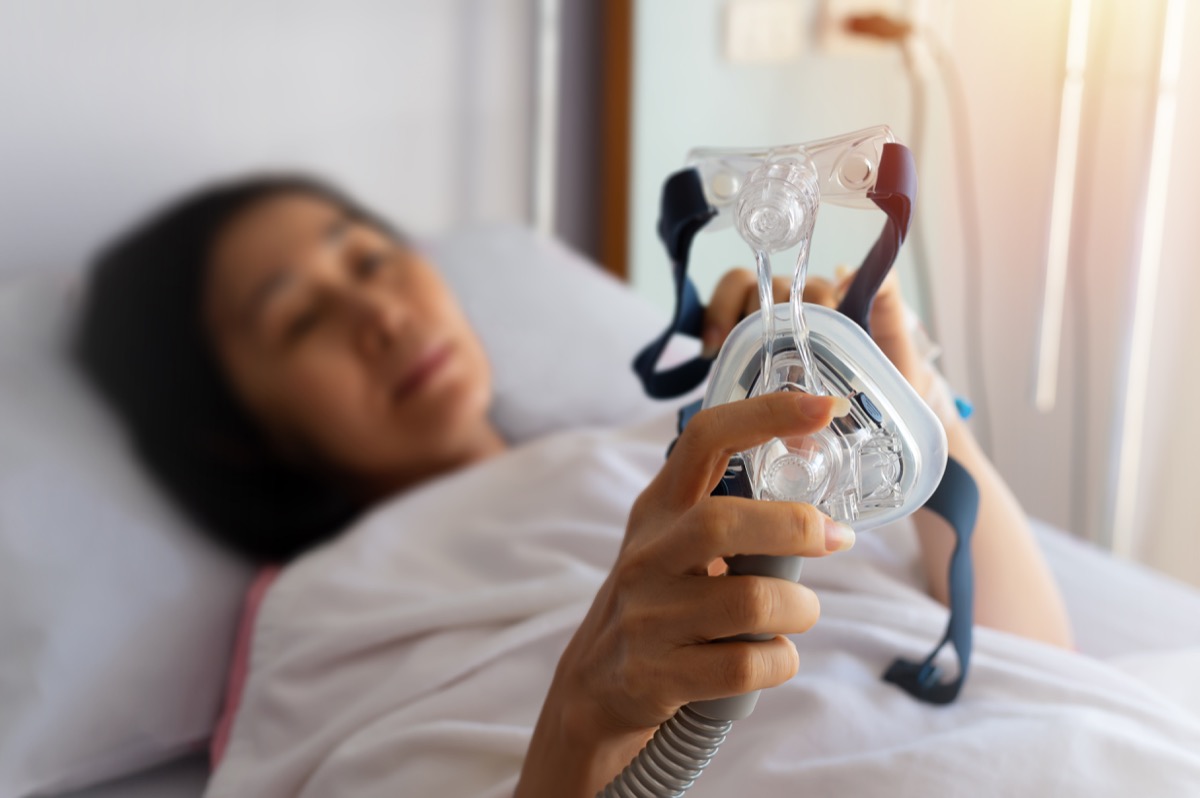A new meta-analysis out of the U.K., published in the journal Sleep Medicine Reviews, looked at 18 previous studies, eight of which dealt mainly with the risk of death from COVID, while the other 10 were related to sleep apnea. According to the Mayo Clinic, there are several types of sleep apnea, but the most common is obstructive sleep apnea. This sleep disorder causes people to repeatedly stop and start breathing at night because their “throat muscles intermittently relax and block [their] airway during sleep.” And one of the most noticeable signs of obstructive sleep apnea is snoring. What the U.K. researchers found in analyzing the earlier research was that people with obstructive sleep apnea had a 2.8 times greater risk of dying from COVID on the seventh day of hospitalization. “It is likely that COVID-19 increases oxidative stress and inflammation and has effects on the bradykinin pathways, all of which are also affected in obstructive sleep apnea patients,” the study’s lead author Michelle Miller, PhD, professor at Warwick Medical School, said in a statement. “When you have individuals in which these mechanisms are already affected, it wouldn’t be surprising that COVID-19 affects them more strongly.” One of the biggest issues with this discovery is that the sleep condition is severely under diagnosed. The Sleep Apnea Association reports that an estimated 22 million Americans have sleep apnea, but that 80 percent of moderate and severe obstructive sleep apnea cases remain undiagnosed. Similarly, according to the review led by Miller, researchers believe that 85 percent of obstructive sleep apnea cases go undiagnosed in the U.K.ae0fcc31ae342fd3a1346ebb1f342fcb “Without a clear picture of how many people have obstructive sleep apnea, it is difficult to determine exactly how many people with the condition may have experienced worse outcomes due to COVID-19,” Miller said. RELATED: For more up-to-date information, sign up for our daily newsletter. If you do have diagnosed sleep apnea, treatment through continuous positive airway pressure (CPAP) may help diminish oxidative stress, inflammation, and effects on the bradykinin pathways. But not enough research has been done to know whether this will help sleep apnea patients’ chances with COVID. “This is a group of patients that should be more aware that obstructive sleep apnea could be an additional risk if they get COVID-19,” Miller said. “Make sure you are compliant with your treatment and take as many precautions as you can to reduce your risk, such as wearing a mask, social distancing, and getting tested as soon as you notice any symptoms.” And for more things that may increase your risk, check out 40 Percent of COVID Patients Went Here Before Getting Sick, CDC Says.
